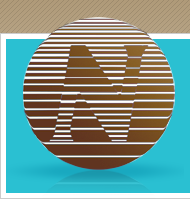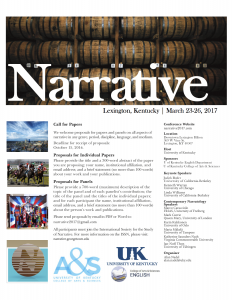CALL FOR PAPERS
ICIDS 2016
9th INTERNATIONAL CONFERENCE ON INTERACTIVE DIGITAL STORYTELLING
November 15-18, 2016
http://icids2016.ict.usc.edu
The Institute for Creative Technologies
The University of Southern California
Los Angeles, USA
This year, the International Conference on Interactive Digital Storytelling (ICIDS 2016) will take place at the Institute for Creative Technologies, University of Southern California, Los Angeles, USA. It also features a collaboration with the ninth edition of Intelligent Narrative Technologies (INT9), a related series of gatherings that holds Artificial Intelligence as its focus.
ICIDS has its origin in a series of related international conferences that ran between 2001 and 2007 (http://www.icids.org/). Since 2008, ICIDS became the premier annual venue that gathers researchers, developers, practitioners and theorists to present and share the latest innovations, insights and techniques in the expanding field of interactive storytelling and the technologies that support it. The field re-groups a highly dynamic and interdisciplinary community, in which narrative studies, computer science, interactive and immersive technologies, the arts, and creativity converge to develop new expressive forms in a myriad of domains that include artistic projects, interactive documentaries, cinematic games, serious games, assistive technologies, edutainment, pedagogy, museum science, advertisement and entertainment, to mention a few. The conference has a long-standing tradition of bringing together academia, industry, designers, developers and artists into an interdisciplinary dialogue through a mix of keynote lectures, long and short article presentations, posters, workshops, and very lively demo sessions.
We welcome contributions from a large range of fields and disciplines related to interactive storytelling, including computational narrative, narratology, computer science, human-computer interaction, media studies and media production, game studies, game design and development, semiotics, museum science, edutainment, virtual and augmented reality, cognitive science, digital humanities, interactive arts and transmedia studies. We encourage original contributions in the forms of research papers, position papers, posters and demonstrations, presenting new scientific results, innovative theories, novel technological implementations, case studies and creative artistic projects in the field of Interactive Digital Storytelling and its possible applications in different domains. We particularly welcome research on topics in the following five areas:
BRAVE NEW IDEAS
We invite papers that explore highly innovative ideas and/or paradigm shifts in conventional theory and practice of interactive storytelling. We seek to draw attention to methods that differ from the state of the art in practice or theory and demonstrate potential for changed ways of thinking. These papers may not be “complete” in the “traditional” manner in the sense that it may not be possible to have experimental results comparing other related efforts or that they may not have large, publicly available data sets to be used for performance comparison. However, we expect these papers to be visionary by nature, where the ideas and theory are strong, but the experimentation maybe preliminary. However, sufficient evidence that the approach is promising must be provided. The aim is to establish a roadmap for the next 5 years as a community guideline for the development of the field.
THEORETICAL FOUNDATIONS
• The role of the user/reader in interactive storytelling
• The role of the author/designer in interactive storytelling
• Computable narrative models inspired by cognitive science, narratology, drama studies, and related disciplines
• Theories and aesthetics of interactive storytelling
• Narratology for interactive media
• Disciplinary analysis of IS research
ANALYSES AND EVALUATION OF SYSTEMS
• Methods/Frameworks for testing user experience in interactive storytelling
• Methods/Frameworks for testing story development
• Normative evaluation of interactive storytelling applications
• Case studies, post-mortems and best practices
USAGE SCENARIOS AND APPLICATIONS
• Collaborative storytelling environments and multi-user systems
• Social, ubiquitous and mobile storytelling
• Interactive narratives in digital games
• Interactive cinema and television
• Interactive storyworlds
• Interactive non-fiction and interactive documentaries
• Interactive narratives as tools for learning in teaching, e-learning, training and edutainment
• Interactive narratives used in health, rehabilitation and exercise
• Interactive storytelling in roleplay, larps, theatre and improvisation
• Interactive narrative in the real world (live installations)
• Interactive narratives in museums
INTELLIGENT NARRATIVE TECHNOLOGIES
As a special collaboration for 2016, this category represents the ninth iteration of a series of gatherings dedicated to advancing research in artificial intelligence (AI) for the computational understanding and expression of narrative (Intelligent Narrative Technologies — INT9). We aim to maintain this forward momentum by gathering an interdisciplinary group of researchers and practitioners to share their latest work at the intersection of narrative and intelligent technology. Specifically, this category focuses on computational systems to represent, reason about, create, adapt, and perform interactive and non-interactive narrative experiences. We particularly welcome submissions that discuss AI advances within digital narrative technologies, including games, simulations, interactive fiction, story generators, and electronic literature. We also invite submissions on fundamental research in related and relevant fields, including, but not limited to:
• User modeling and narrative user interfaces
• Authoring modes and tools for interactive digital storytelling, including collaborative authoring
• Story/world generation and experience management
• Artificial intelligence for story generation and storytelling
• Computational understanding, analysis, and summarization of narratives, including natural language processing and computer vision
• Drama management for interactive narratives
• Narrative discourse generation
• Interactive cinema and television
• Media, VR and game technologies for interactive storytelling
• Narrative knowledge representation, reasoning, and acquisition
• Virtual characters and virtual humans
• Synthetic actors
• Non-verbal interactive stories
• Narrative presence and engagement in virtual environments
• Narrative-related affect and emotion
• Computational creativity in narrative systems
• Human-computer interaction with narrative technologies
Though evaluations are not a strict condition for acceptance, authors are strongly encouraged to provide means to validate the described approach or system/environment/experience.
SUBMISSIONS
The peer review process for ICIDS will be double blind. Reviewers will not know whom they review and authors also will not know who reviews them. As a condition of that authors have to anonymise the paper before they submit it (i.e. no author names and no references or acknowledgements that can help to identify the author). Only the reviewers of the same paper and the respective author(s) will be able to see the reviews and additional comments if they are available. Reviews will not be made public after the review process will have been finished.
All submissions must follow the Lecture Notes in Computer Science (LNCS) format, available at: http://www.springer.com/computer/lncs?SGWID=0-164-6-793341-0. Papers must be written in English, and only electronic submissions in PDF format will be considered for review. Submissions that receive high ratings in the peer review process will be selected for publication by the program committee as Springer LNCS conference proceedings. For the final print-ready version, the submission of source files (Microsoft Word/LaTeX, TIF/EPS) and a signed copyright form will be required.
All submissions will be processed using the Easychair Online Conference System. Authors are advised to register a new account well in advance of the paper submission deadline:
https://easychair.org/conferences/?conf=icids2016
THE SUBMISSION CATEGORIES ARE:
• Full papers (10-12 pages in the main proceedings) describing interesting, novel results or completed work in all areas of interactive digital storytelling and its applications. Papers for the Brave New Topic category only fall into this category.
• Short papers (6-8 pages in the main proceedings) presenting exciting preliminary work or novel, thought-provoking ideas in their early stages.
• Demonstrations and posters (2-4 pages in the backmatter of the proceedings) describing working, presentable systems or brief explanations of a research project.
IMPORTANT DATES
• Submission deadline – June 17th, 2016 (11:59 pm. Hawaii Standard Time) Authors are strongly advised to upload their submissions well in advance of this deadline.
• July 29th, 2016 – Accept/reject notifications sent to authors.
• August 12th, 2016 – Camera-ready copy due.
• November 15-18, 2016 – ICIDS Conference.
WORKSHOP PROPOSALS
Workshops can vary in length, from half a day to a full day. Proposals for workshops should be two to four pages in length, and include the following information:
1. A brief technical description of the workshop, explaining its goals, topic and expected outcome. A format and proposed schedule, including audience, and a short draft of the call for participation.
2. The names, affiliations and email addresses of the proposed organizing committee. This committee should consist of two to four people recognized in the area.
3. The primary contact for the organizing committee.
4. If available, a list of tentatively confirmed attendees.
Workshop organizers must submit their calls for participation to Reid Swanson, ICIDS-2016 Workshop Chair, at rswanson@ict.usc.edu
INTERNATIONAL ART EXHIBITION
Since 2010, ICIDS has been hosting an international art exhibition open to the general public. A separate call for the International Art Exhibition will be issued here: http://icids2016.ict.usc.edu/exhibition/
ORGANIZATION
The Ninth International Conference on Interactive Digital Storytelling (ICIDS-2016) will take place on November 15-18, 2016 at the Institute for Creative Technologies at the University of Southern California in Los Angeles, California, USA.
General chair:
Andrew Gordon, University of Southern California
Programme Committee Chair:
Frank Nack, University of Amsterdam
INT9 Track Co-Chairs:
Chris Martens, University of California at Santa Cruz
Rogelio E. Cardona-Rivera, North Carolina State University
Programme Committee:
Please see: http://icids2016.ict.usc.edu/committee/
CONTACT
Questions about the conference should be directed to the organizers at: icids2016@ict.usc.edu
For further information and for updates please visit the webpage at:
http://icids2016.ict.usc.edu
Please feel free to distribute this call for papers.


